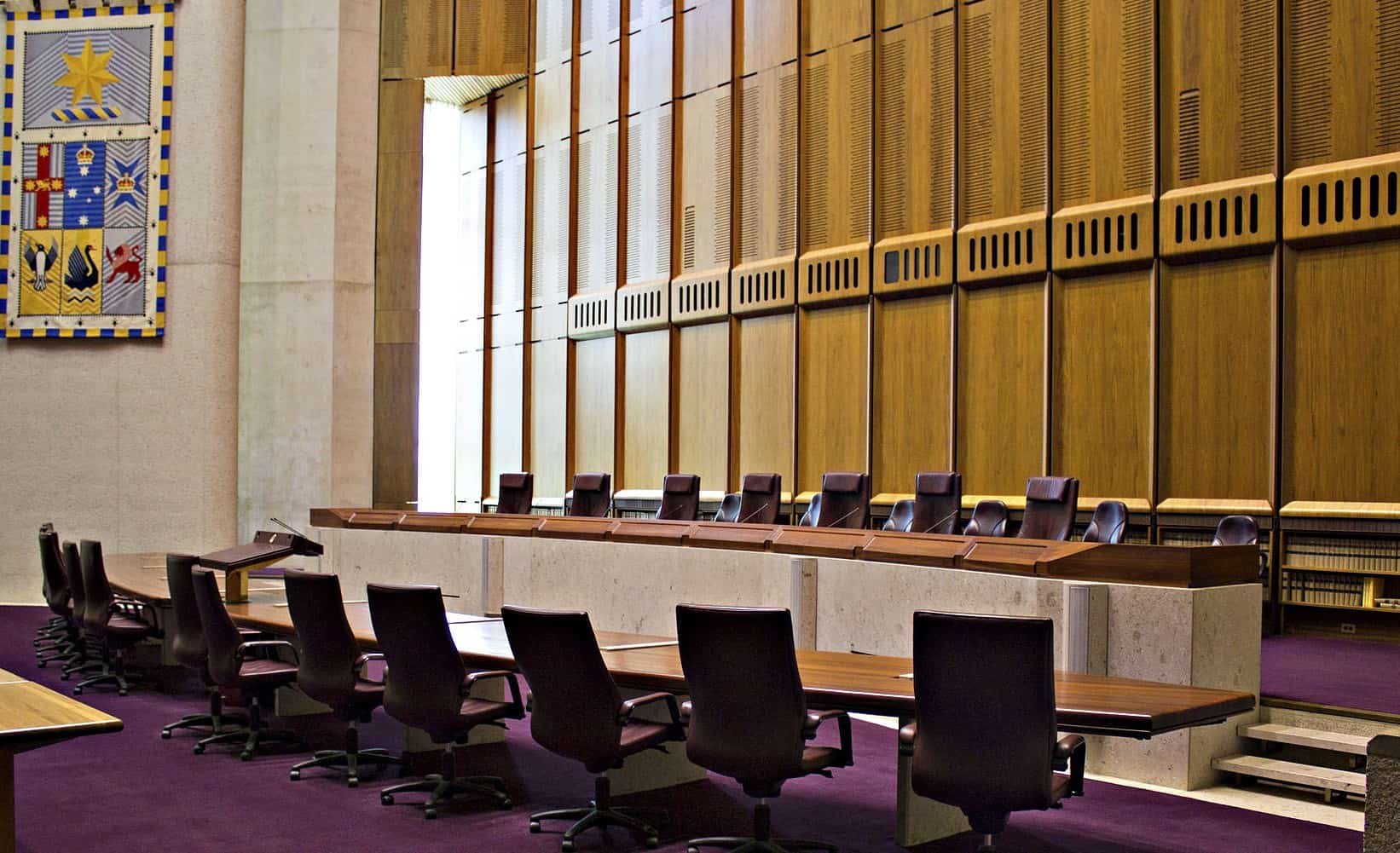Freedom of Speech and APEC

Do Australians have freedom of speech?
Do Australians have freedom of speech? And, if so, was that freedom of speech illegally curtailed by the Howard government and the NSW government during APEC?
IANAL but it seems so.
Freedom of speech is not a stated right in the Constitution but laws restricting freedom to discuss, debate and publish communications concerning politics, political parties and individual politicians are disallowed in the Constitution, by implication, as inimical to the nature of the representative political system which was intended to be created by the Constitution.
In political matters there is “an area of immunity from legal control, particularly from legislative control.”
You might think that the APEC demonstration on Saturday 8 September was a political statement. You might think that the size and intended path of that demonstration was part of the statement itself. You might think that any legal action which attempted to curtail and restrict the size and place of that statement was improper and contrary to the Constitution (e.g. ss 7 and 24 and the related sections).
You might think that a state and federal police presence which by its size was intended to and/or in fact did intimidate people so that they might have feared fully to express [publish] their views, or which actually prevented people from communicating their views — either before or during the expression of those views — was in contravention of the Commonwealth Constitution.
You might even believe it arguable that a wall, erected pursuant to a legal process, which protected certain political leaders from receiving communications from electors, was in contravention of the Constitution.
You might even think that the Howard government does not particularly care for the Constitution of the Commonwealth of Australia and that they act despite it and in contravention of it and, where necessary to their agenda, work around it.
We might think, and you might agree, that the letter which Values Australia received in March from the Department of Immigration and Citizenship
- which held a variety of laws and acts to our head, and
- which attempted to intimidate Values Australia by calling Values Australia “misleading and offensive”, and
- claimed that it “may seriously damage Australia’s reputation overseas”, and
- claimed that it “may also create confusion regarding the important business managed by the Department”
was acting illegally in this attempt to use the law to intimidate, and to restrict the expression of political opinion.
You might think that it is time the Howard government was removed from office.
You might think that the Iemma government in NSW is a total joke and that you wished there were a credible alternative.
The full text of a High Court case — Lange v Australian Broadcasting Corporation — which discussed the issue of freedom of speech is here:
http://www.austlii.edu.au/au/cases/cth/HCA/1997/25.html
And here are some of the relevant excerpts:
” There is implied in the Commonwealth Constitution a freedom to publish material:
(a) discussing government and political matters;
(b) of and concerning members of the Parliament of the Commonwealth of Australia which relates to the performance by such members of their duties as members of the Parliament or parliamentary committees;
(c) in relation to the suitability of persons for office as members of the Parliament.”
[ … ]
Freedom of communication
Freedom of communication on matters of government and politics is an indispensable incident of that system of representative government which the Constitution creates
[ … ]
Communications concerning political or government matters between the electors and the elected representatives, between the electors and the candidates for election and between the electors themselves were central to the system of representative government, as it was understood at federation[43]. While the system of representative government for which the Constitution provides does not expressly mention freedom of communication, it can hardly be doubted, given the history of representative government and the holding of elections under that system in Australia prior to federation, that the elections for which the Constitution provides were intended to be free elections in the sense explained by Birch. Furthermore, because the choice given by ss 7 and 24 must be a true choice with “an opportunity to gain an appreciation of the available alternatives”, as Dawson J pointed out in Australian Capital Television Pty Ltd v The Commonwealth[44], legislative power cannot support an absolute denial of access by the people to relevant information about the functioning of government in Australia and about the policies of political parties and candidates for election.
That being so, ss 7 and 24 and the related sections of the Constitution necessarily protect that freedom of communication between the people concerning political or government matters which enables the people to exercise a free and informed choice as electors. Those sections do not confer personal rights on individuals. Rather they preclude the curtailment of the protected freedom by the exercise of legislative or executive power. As Deane J said in Theophanous[45], they are “a limitation or confinement of laws and powers [which] gives rise to a pro tanto immunity on the part of the citizen from being adversely affected by those laws or by the exercise of those powers rather than to a ‘right’ in the strict sense”. In Cunliffe v The Commonwealth[46], Brennan J pointed out that the freedom confers no rights on individuals and, to the extent that the freedom rests upon implication, that implication defines the nature and extent of the freedom. His Honour said[47]:
“The implication is negative in nature: it invalidates laws and consequently creates an area of immunity from legal control, particularly from legislative control.”
[our emphases]




0 Comments